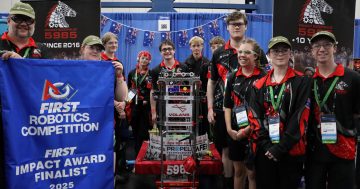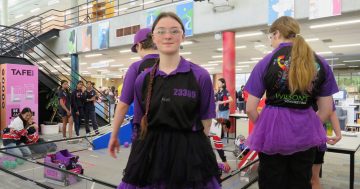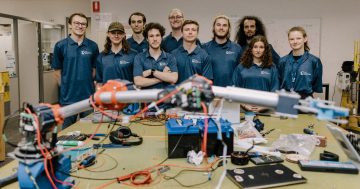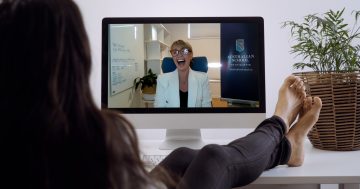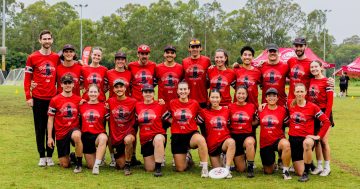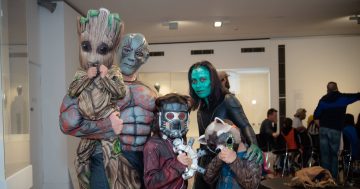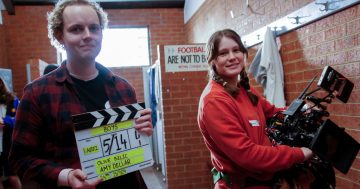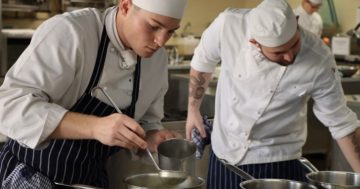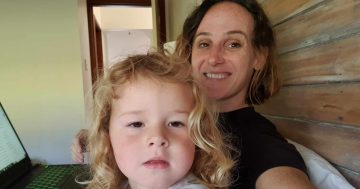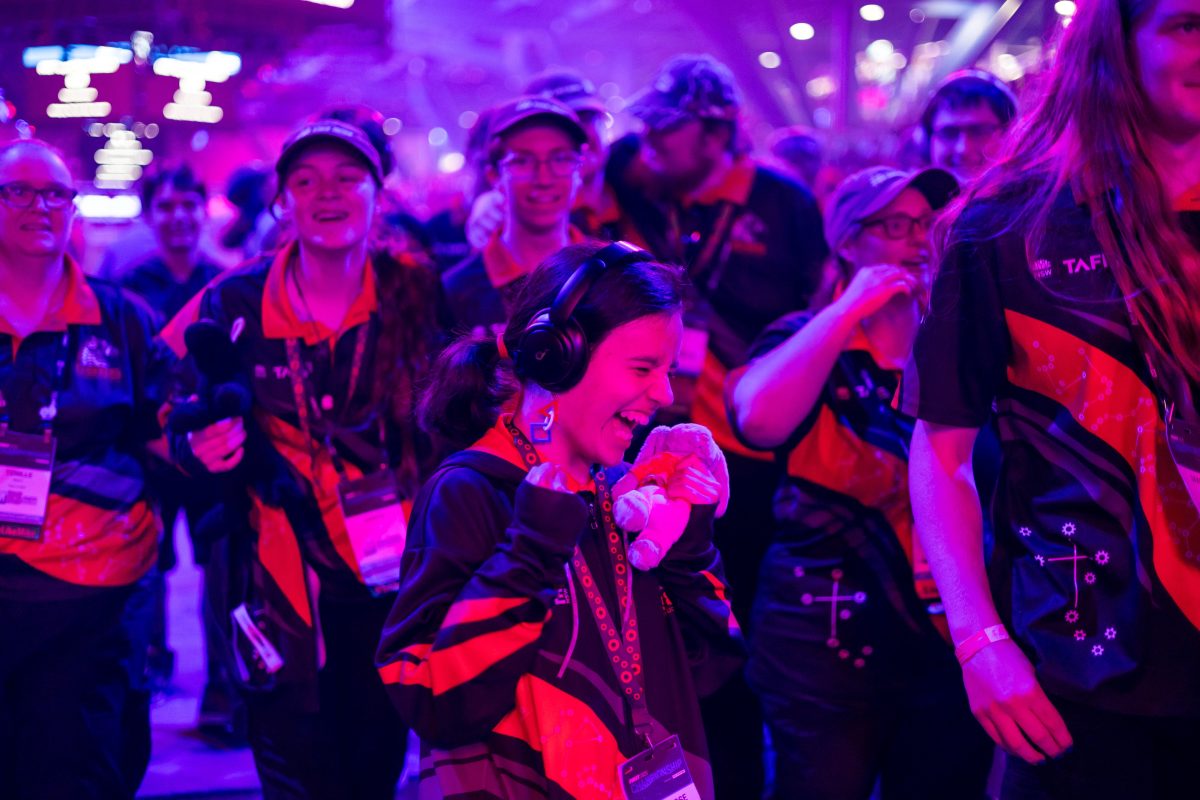
This is the moment the Project Bucephalus FIRST Team learnt, after three years of making the finals, they’d been awarded the prestigious Impact award in Houston, Texas. Photo: Project Bucephalus.
Wollongong’s conquering heroes, Project Bucephalus, have returned victorious after a recent trip to the US.
Much like Alexander the Great’s famous horse, Project Bucephalus has helped kids across the region explore uncharted territory.
Technically, a robotics program, the group offers much more.
It’s brought opportunities to children who were told they’d reached their limit in mainstream schooling, provided a lifeline for others crushed by bullying, and helped reduce recidivism in kids struggling to stay on the straight and narrow.
Through the For Inspiration and Recognition of Science and Technology (FIRST) youth organisation, they’ve built friendships – and robots – around the world.
This year, in recognition of their efforts, the club’s FIRST Robotics Team was awarded the prestigious Impact award in Houston in the US.
The Impact award recognises the team that best represents a model for others to emulate on and off the field. That’s quite an achievement, considering they were competing against more than 600 teams.
Lead mentor Andrew Clark said the cheers of 50,000 people nearly lifted the roof when Project Bucephalus were announced as the winners for 2025.
“It’s the loudest applause I’ve ever heard,” he said.
“More than 70 per cent of the team have a diagnosed disability or disorder, everything from PTSD to epilepsy, anxiety and autism.
“A lot of them come from low-income families. These aren’t kids who are used to being told they’re the best in the world at something.
“They have put in a huge amount of work to get here, and I am so proud of them.”
Project Bucephalus began 15 years ago when Andrew’s son, aged nine at the time, saw a flyer for the junior FIRST LEGO competition in a magazine.
Andrew said the first year of competition had them hooked, not because of the robots, but because of the kind, professional atmosphere at the event.
As they continued to compete and began outreach programs, Andrew realised there was a hunger across the region for the opportunities offered by Project Bucephalus.
“We have 44 kids from 20 schools, including homeschooled children, in the LEGO League team and the FIRST team,” he said.
“The running gag is that we attract the weird ones, and we like it that way.
“The need to be meaningful, to have an opportunity, to be welcomed and wanted, that never stops.
“Kids who weren’t expecting to get this kind of opportunity grab it with both hands and don’t let go.
“They have missed out on so much, and now they’re leading the world in STEM education and plain decency.
“These kids are going places.”
Two of those kids are sisters Zanita and Annikka Pratt.
They became involved in Project Bucephalus after they saw the positive impact it had on their older sister, Anastasia, when she joined in 2020.
Zanita and Annikka were both part of the 2025 award-winning team, with Zanita the student lead for the part of the team that writes their essays and executive summaries, while Annikka is the robot’s main driver – a particularly impressive feat as she’s not yet turned 14.
The sisters said the win in America felt surreal and hadn’t quite sunk in yet.
“I don’t know how to explain the feeling,” Zanita said.
“Ten years of work went into making this happen before I even knew the team existed.
“I’ve learnt how to work together with people I wouldn’t normally work with, how to respect those people and respect people who might not be older than me but can teach me more than I could learn by myself.”
Annikka said she was stoked to have the opportunity to explore her passion for STEM in a supportive environment.
“It’s not just the inclusion of our team but the environment of the robotics competition,” she said.
“At a soccer game, you’ll have parents yelling, people speaking to the ref rudely.
“At a robotics competition, people are cooperating through fierce competition. It’s the hardest fun you’ll ever have.”









